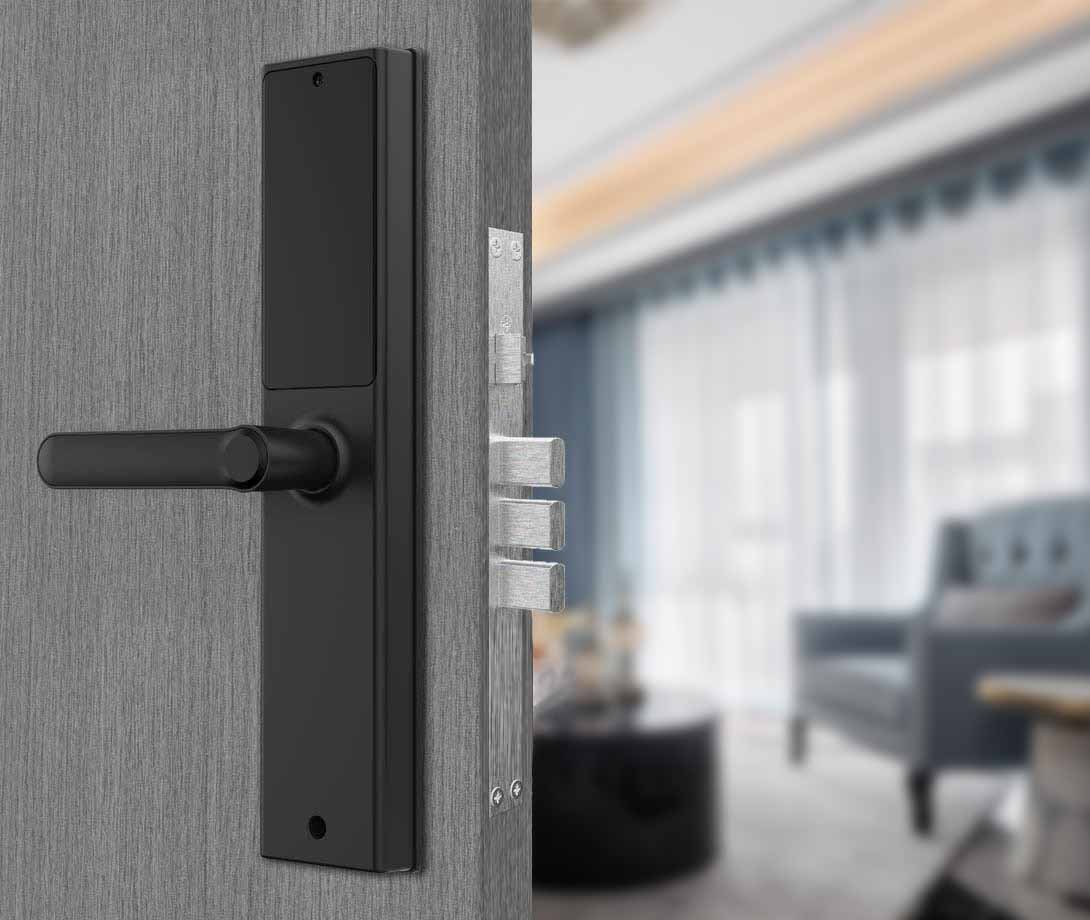What Are the Disadvantages of a Smart Lock?
Smart locks are revolutionizing home security, offering keyless entry, remote access, and seamless smart home integration. But while they’re convenient, they’re not perfect. Before you ditch your traditional keys, it’s crucial to understand the potential downsides.
In this guide, we’ll explore:
- The biggest security risks of smart locks
- Technical glitches that can leave you locked out
- Hidden costs and privacy concerns
- When a traditional deadbolt might still be better
By the end, you’ll know exactly what problems to anticipate—and how to avoid them.
7 Major Disadvantages of Smart Locks
1. Power & Internet Dependence (The #1 Problem)
Smart locks rely on batteries or electricity, and most need Wi-Fi/Bluetooth for full functionality.
Battery Failures:
- Dead batteries can lock you out (unless you have a backup key).
- Some models don’t warn you before dying.
- Extreme cold drains batteries faster.
Connectivity Issues:
- Wi-Fi outages disable remote access.
- Bluetooth-only locks won’t work if your phone dies.
Fix:
- Choose a lock with emergency power (9V battery terminals).
- Keep spare batteries handy.
2. Hacking & Cybersecurity Risks
While rare, smart locks can be hacked if not properly secured:
- Bluetooth spoofing (hackers mimic your phone’s signal).
- Wi-Fi brute-force attacks (weak passwords make this easier).
- Man-in-the-middle attacks (intercepting app communications).
Real-World Example:
In 2022, researchers hacked a popular smart lock via Bluetooth in under 30 seconds.
Fix:
- Use strong passwords & two-factor authentication (2FA).
- Buy locks with AES-256 encryption.
3. Glitches & Software Bugs
Smart locks are mini-computers, meaning they can:
- Freeze or crash after a firmware update.
- Fail to auto-lock/unlock due to sensor errors.
- Lose app connectivity randomly.
User Report:
“My August Lock stopped responding after an iOS update—had to remove the batteries to reset it.” – Reddit user
Fix:
- Regularly update firmware.
- Choose brands with local control (works without cloud).
4. Compatibility Issues with Doors & Smart Homes
Not all smart locks fit all doors:
- Non-standard door thickness (e.g., metal or fiberglass doors).
- Incompatibility with smart assistants (some only work with Alexa, not HomeKit).
- Multi-point locking systems may need professional installation.
Common Problem:
Renters often can’t install smart locks due to lease restrictions.
Fix:
- Measure your door before buying.
- For renters, use retrofit models .
5. Higher Cost vs. Traditional Locks
| Lock Type | Average Cost |
|---|---|
| Standard Deadbolt |
20−50 |
| Digital Keypad Lock |
100−200 |
| Smart Lock (Wi-Fi) |
200−400+ |
Hidden Costs:
- Monthly subscriptions for advanced features (e.g., remote access on some models).
- Professional installation (
100−300 if DIY isn’t an option).
6. Privacy Concerns (Yes, Your Lock Tracks You)
Many smart locks collect data, including:
- Entry/exit logs (who comes and goes).
- Location data (if using geofencing).
- Usage patterns (sold to advertisers in some cases).
Creepy Fact:
Some insurance companies raise rates if your smart lock shows frequent unlocked periods.
Fix:
- Disable unnecessary data sharing in the app.
- Choose brands with local storage only (no cloud).
7. Mechanical Failures (Yes, They Still Happen)
Even high-tech locks suffer from:
- Worn-out motors (after 50,000+ cycles).
- Stuck bolts due to weather (freezing temps, humidity).
- Keypad wear (numbers fade or become unresponsive).
Weather Woes:
“My Schlage lock froze shut in Chicago winter—had to use the physical key.” – Amazon review
Fix:
- Lubricate bolts with graphite powder (not WD-40).
- Choose weather-resistant models (ANSI Grade 1 or 2).
When Is a Traditional Lock Better?
Stick With a Deadbolt If You…
- Live in an area with frequent power outages.
- Want zero hacking risk.
- Prefer low-maintenance, decades-long durability.
Choose a Smart Lock If You…
- Need remote access for guests/pets.
- Love smart home automation.
- Don’t mind occasional troubleshooting.
How to Minimize Smart Lock Risks
Always have a backup key (even if you never use it).
Pick a lock with a high ANSI grade (1 or 2 for best durability).
Avoid cloud-dependent models if privacy is a concern.
Install a secondary lock (e.g., a keypad deadbolt as backup).
Final Verdict: Are Smart Locks Worth It?
Yes—if you understand the trade-offs. They offer unmatched convenience but require more maintenance and awareness than traditional locks.
Best for:
- Tech-savvy homeowners
- Airbnb hosts
- Families with frequent guest access
Worst for:
- People in extreme climates
- Those wanting “set it and forget it” security
- Privacy-focused users
FAQ: Smart Lock Disadvantages
Q: Can a smart lock be hacked?
A: Yes, but it’s rare—use encryption and strong passwords.
Q: Do all smart locks need Wi-Fi?
A: No, some use Bluetooth only.
Q: Do locksmiths hate smart locks?
A: Many prefer traditional locks but will service smart ones (for a fee).
Now that you know the potential pitfalls, you can decide if a smart lock fits your lifestyle—or if sticking with a trusty deadbolt is smarter.
Post time: Apr-26-2025


